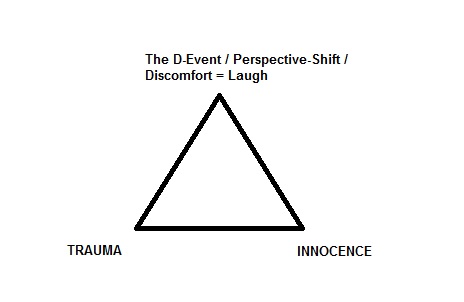''The laugh is the starting shot of ‘the event’ (or D-event as I called it), and the laugh (when being a part of the ‘D-event’) is able to result in a perspective shift revolving around the given subject matter.''
''So one could argue that the viewer expects to feel innocence (or nothing specific at all) when walking up to my work and reacts out of discomfort with a laugh because the expectations and promises aren’t fulfilled. Or someone’s mental pattern is broken (which could relate to traumas or perceptions of right/wrong).''
''In this scenario the laugh during my process could be a reaction to; me putting my (childhood) trauma’s in perspective, it could be me breaking my own (mental) patterns and expectations, it could be me reacting to the discomfort of the material I use (or the way the imagery is mixed), it could be me finally gaining the distance from my sources to put them into perspective etc. The same thing goes exactly for the viewer; according to Landoni humor in arts is a key factor in adding a layer of decentering, play, imagination and crystallization into a viewer’s perspective, they create space between the viewer and it’s problems/trauma’s.''
